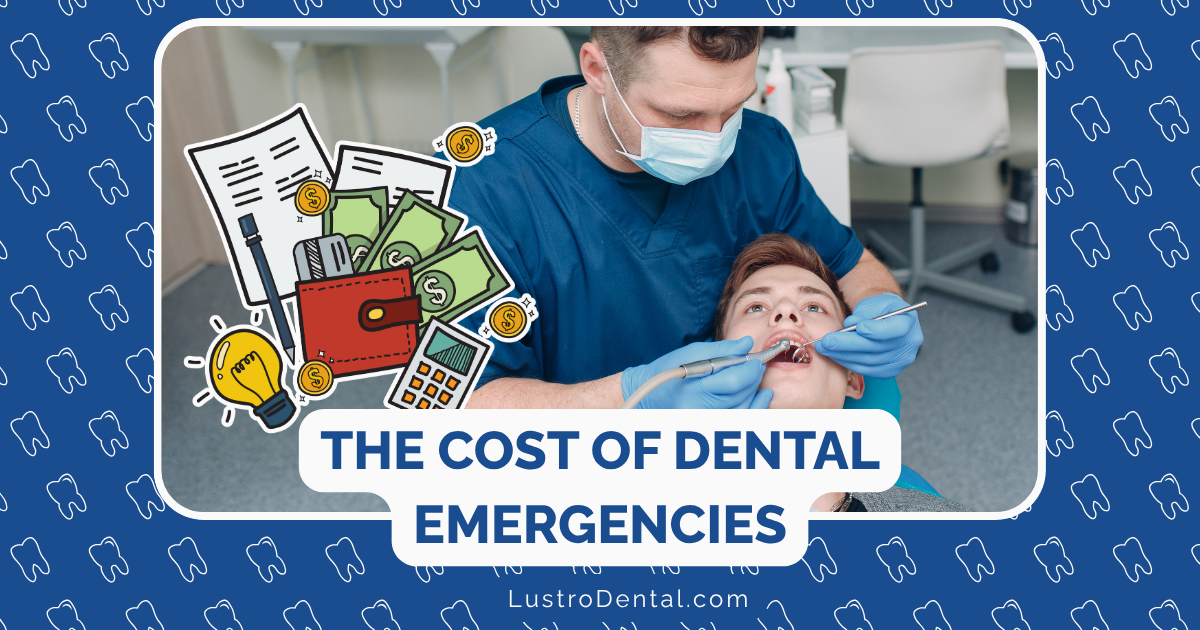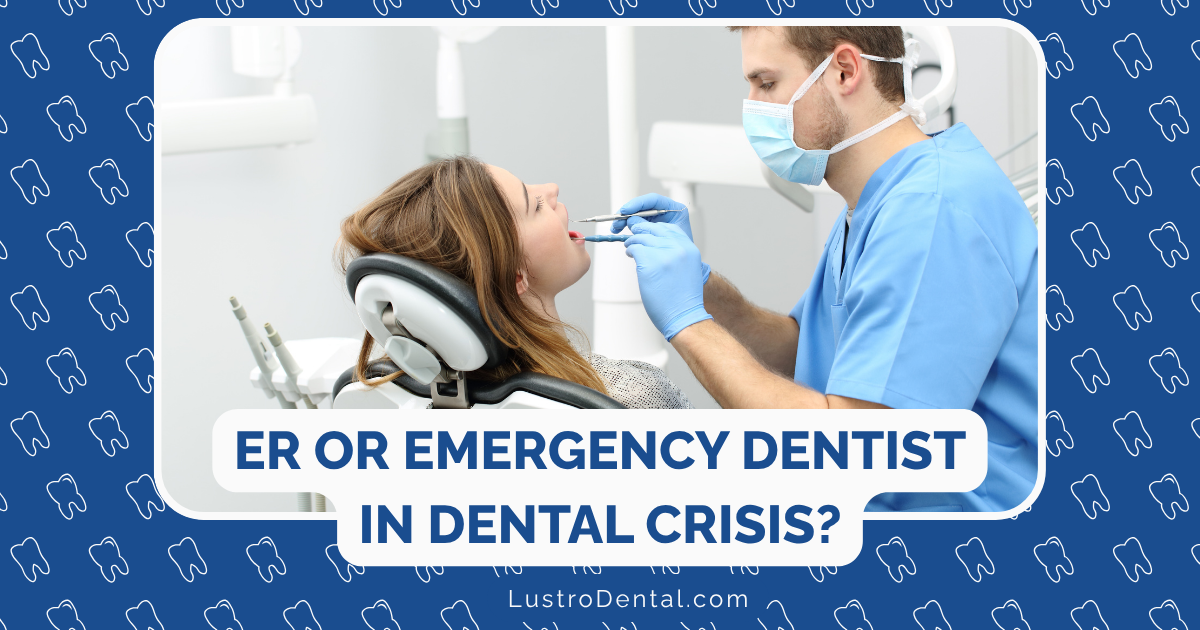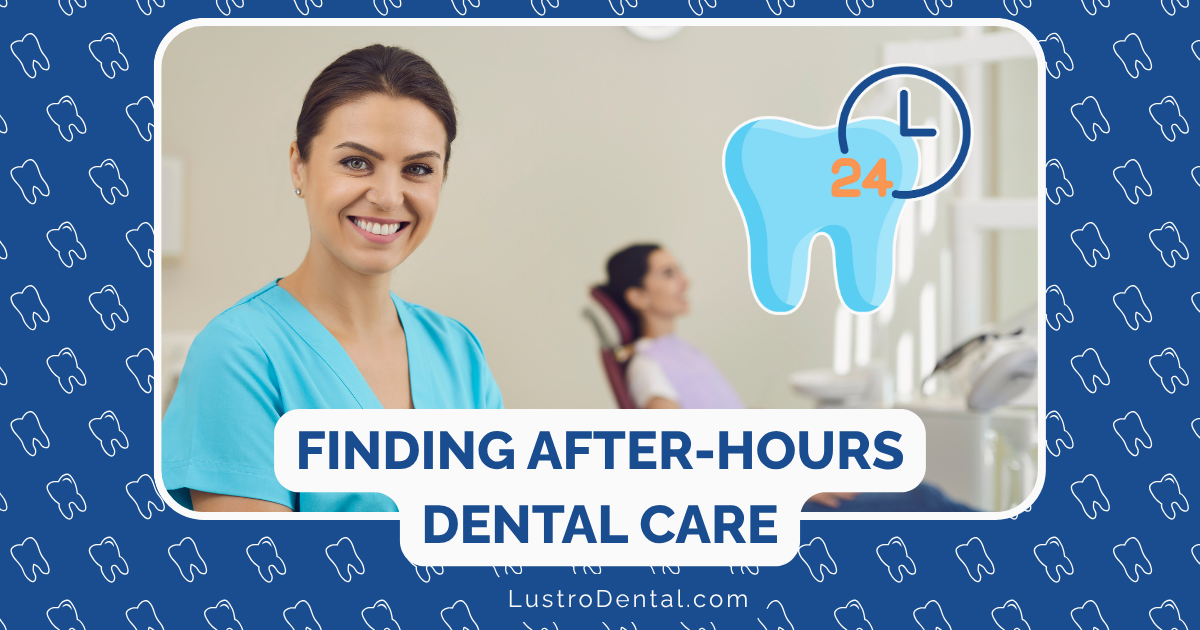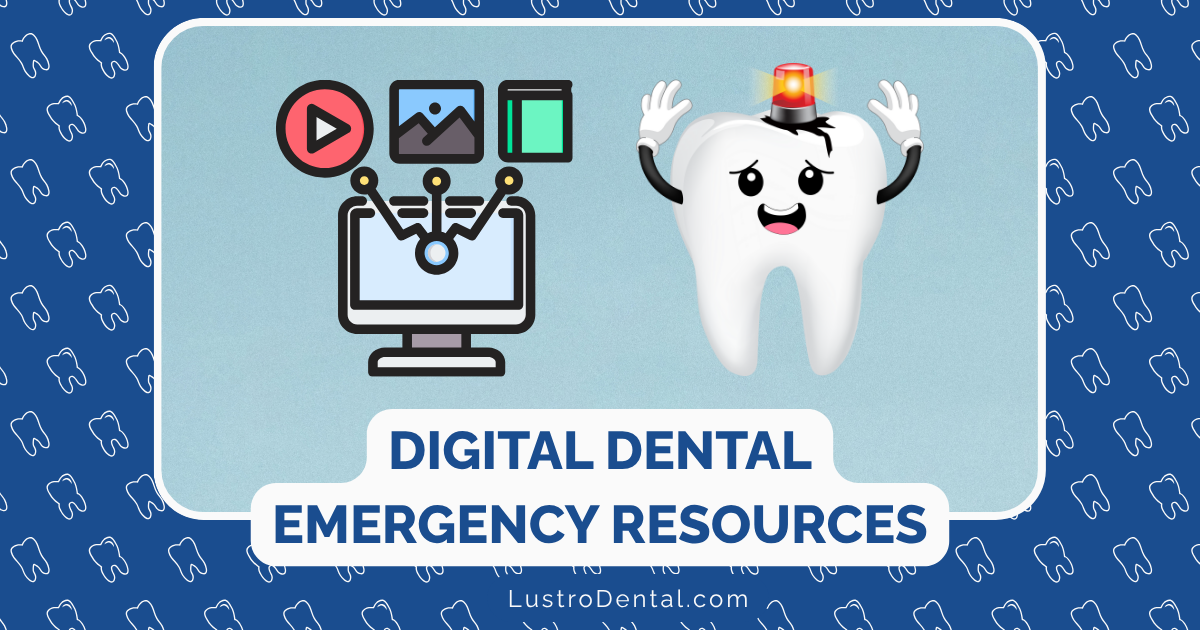Evaluating Emergency Dental Clinics: What to Look For
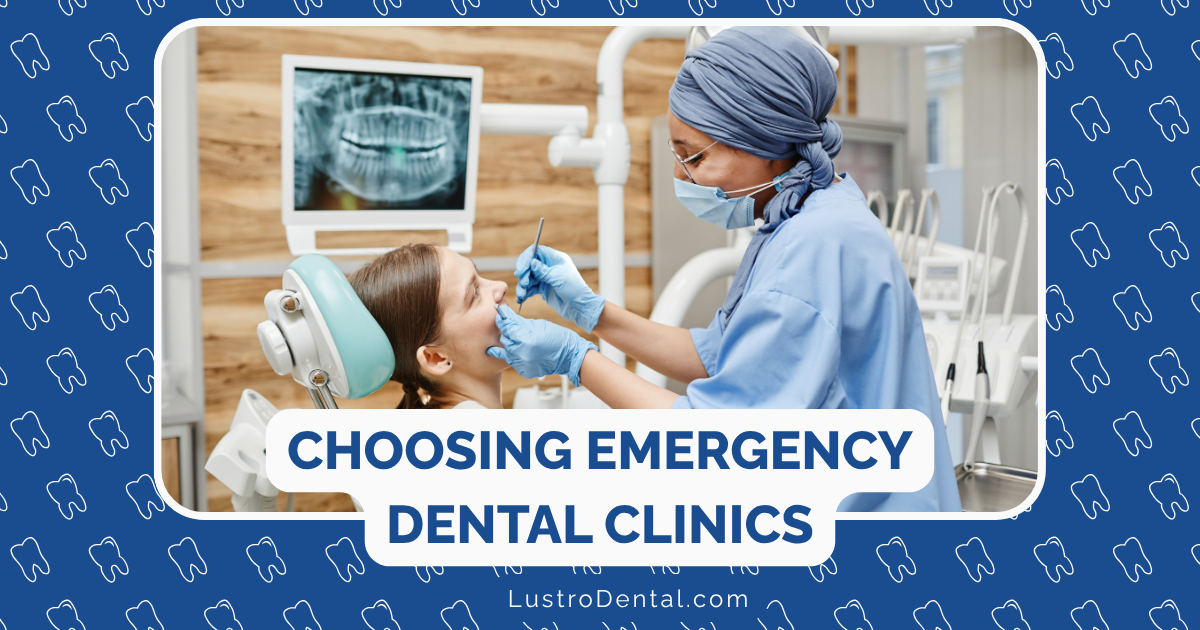
When a dental emergency strikes—whether it’s excruciating tooth pain, a knocked-out tooth, or a broken dental appliance—the last thing you want is to waste precious time trying to figure out which emergency dental clinic to trust. Yet in that moment of crisis, making an informed decision can significantly impact your treatment outcome, comfort level, and financial situation.
As someone who’s helped countless patients navigate dental emergencies, I’ve seen firsthand how the quality of emergency dental care can vary dramatically between providers. The right emergency dental clinic doesn’t just address your immediate pain—it provides comprehensive care that prevents further complications while respecting your time, budget, and dignity during a vulnerable moment.
Let’s explore the essential criteria for evaluating emergency dental clinics, so you can make an informed choice before an emergency happens or quickly assess your options when one does.
Why Evaluating Emergency Dental Clinics Matters
Before diving into specific evaluation criteria, it’s important to understand why this assessment matters:
- Time sensitivity: Dental emergencies often involve narrow treatment windows (especially for knocked-out teeth, where reimplantation success rates drop significantly after 30-60 minutes)
- Pain management: Proper emergency care should quickly address severe pain with appropriate techniques
- Preventing complications: Quality emergency care prevents minor issues from becoming major problems
- Financial implications: Emergency treatment costs vary widely, and understanding payment options beforehand can prevent financial stress
- Continuity of care: The best emergency clinics coordinate with your regular dentist for follow-up care
Dr. Sarah Johnson, emergency dental specialist at the American Dental Association, explains: “The quality of emergency dental care can make the difference between saving or losing a tooth, between a simple procedure now or a complex one later. Taking time to evaluate your emergency options before you need them is one of the smartest things a dental patient can do.”
Essential Criteria for Evaluating Emergency Dental Clinics
1. Accessibility and Availability
True 24/7 availability
- Verify if the clinic actually provides round-the-clock service or just claims to
- Check if after-hours care means an on-call dentist or just an answering service
- Confirm weekend and holiday coverage
Location and travel time
- Consider clinics within a 30-minute radius (critical for time-sensitive emergencies)
- Evaluate parking availability and public transportation access
- Check if they have multiple locations that honor the same emergency protocols
Appointment flexibility
- Ask about their policy for fitting in emergency patients
- Inquire about typical wait times for emergency cases
- Determine if they offer virtual consultations for initial assessment
Dr. Michael Roberts of Emergency Dental Care Association advises: “True emergency dental clinics should have systems in place to accommodate same-day appointments for genuine emergencies, with protocols to triage cases based on severity rather than just first-come, first-served.”
2. Scope of Emergency Services
Range of emergency treatments
- Confirm they handle all common dental emergencies:
- Severe toothaches and dental infections
- Knocked-out or loosened teeth
- Broken or chipped teeth
- Lost fillings, crowns, or bridges
- Broken dentures or orthodontic appliances
- Soft tissue injuries to the mouth
- Post-procedure complications
Advanced emergency capabilities
- Check if they offer surgical services for complex emergencies
- Verify if they can handle dental trauma cases
- Confirm availability of emergency root canal treatment
Equipment and technology
- Digital x-rays for immediate diagnostic imaging
- CAD/CAM technology for same-day restorations
- Advanced sterilization protocols
A comprehensive emergency dental clinic should be equipped to handle virtually any dental emergency without having to refer you elsewhere during a crisis. According to a study published in the Journal of Dental Emergencies, clinics with broader service capabilities typically provide more definitive emergency care with fewer follow-up appointments needed.
3. Qualifications and Expertise
Dentist credentials
- Verify proper licensing and board certification
- Check for specialized training in emergency dentistry
- Look for membership in professional organizations like the American Dental Association
Experience with emergencies
- Ask how many emergency cases they handle weekly
- Inquire about experience with your specific type of emergency
- Check if they have specialized emergency dentists on staff
Continuing education
- Determine if dentists regularly update their emergency care knowledge
- Look for advanced training in pain management
- Check for trauma management certifications
Dr. Lisa Wong, dental education specialist at Dental Education Institute, notes: “Emergency dentistry requires a unique skill set beyond routine dental care—including rapid assessment, decisive action, and advanced pain management techniques. The best emergency dentists continuously update their emergency care knowledge and skills.”
4. Patient Experience During Emergencies
Pain management approach
- Ask about their protocol for immediate pain relief
- Check if they offer various sedation options
- Inquire about their approach to dental anxiety during emergencies
Communication during crisis
- Evaluate how clearly they explain emergency procedures
- Check if they take time to discuss treatment options even in emergencies
- Assess their ability to calm anxious patients
Compassionate care
- Look for reviews mentioning staff empathy during emergencies
- Observe how they interact with patients in distress
- Note if they rush through emergency appointments
According to research published in the Journal of Patient Experience, patients experiencing dental emergencies rank compassionate care and clear communication nearly as important as technical competence in their overall satisfaction with emergency dental services.
5. Financial Transparency and Options
Emergency exam fees
- Get clear information about initial emergency examination costs
- Ask if diagnostic imaging (x-rays) is included or additional
- Understand any after-hours or weekend surcharges
Treatment cost transparency
- Check if they provide written estimates before proceeding with treatment
- Ask if they offer multiple treatment options at different price points
- Verify if they explain which treatments are urgent vs. which can wait
Payment and insurance options
- Confirm which insurance plans they accept
- Ask about payment plans for emergency care
- Check if they offer financing options for larger emergency treatments
- Inquire about cash discounts or membership plans
Dr. Robert Chen, dental finance expert at Dental Economics Association, advises: “Financial stress shouldn’t compound dental pain. The best emergency dental clinics provide clear, upfront cost information and multiple payment options to reduce financial anxiety during an already stressful situation.”
6. Infection Control and Safety Standards
Visible sterilization protocols
- Look for visible sterilization areas or indicators of proper protocols
- Check if staff wear appropriate personal protective equipment
- Observe general cleanliness of the facility
Emergency-specific safety measures
- Ask about protocols for handling dental trauma with bleeding
- Check procedures for treating patients with active infections
- Inquire about antibiotic protocols for certain emergencies
Compliance with regulations
- Verify compliance with OSHA and CDC guidelines
- Check for proper waste management practices
- Look for current facility accreditation
According to the Centers for Disease Control and Prevention, infection control standards are particularly critical in emergency dental settings, where time pressure might otherwise tempt shortcuts in safety protocols.
7. Coordination with Regular Dental Care
Documentation and records
- Ask how emergency treatment information is shared with your regular dentist
- Check if they provide detailed treatment reports
- Verify if they send x-rays and images to your primary dentist
Follow-up protocols
- Inquire about their process for ensuring proper follow-up care
- Ask if they schedule follow-up appointments or refer back to regular dentists
- Check how they handle transitions of care
Relationship with other providers
- Determine if they have a network of specialists for complex cases
- Ask about their relationship with local hospitals for severe emergencies
- Check if they coordinate with your general dentist
The American Association of Endodontists emphasizes that proper coordination between emergency providers and regular dentists is essential for continuity of care and optimal long-term outcomes.
Red Flags to Watch For
When evaluating emergency dental clinics, be alert for these warning signs:
1. Excessive Upselling During Emergencies
- Recommending extensive treatment beyond addressing the immediate emergency
- Pressure to commit to costly procedures while in pain
- Reluctance to provide temporary solutions until you can see your regular dentist
2. Vague or Inconsistent Pricing
- Inability to provide even approximate cost estimates
- Hidden fees that appear on the final bill
- Significant price discrepancies compared to other emergency providers
3. Poor Reviews Specifically About Emergency Care
- Patterns of complaints about long wait times during emergencies
- Multiple mentions of inadequate pain management
- Recurring themes about unprofessional behavior during crisis situations
4. Limited Emergency Capabilities
- Frequently referring emergency patients elsewhere
- Limited hours despite advertising as an emergency clinic
- Inability to handle common dental emergencies
5. Outdated Equipment or Facilities
- Visibly outdated diagnostic equipment
- Lack of digital x-ray capabilities
- Questionable sterilization practices
How to Research Emergency Dental Clinics
To properly evaluate emergency dental clinics before you need one, consider these research approaches:
1. Online Research
- Review sites: Check Google, Yelp, and Healthgrades reviews, focusing specifically on emergency care experiences
- Social media: Look for patient experiences shared on the clinic’s social media pages
- Website evaluation: Assess how clearly they explain their emergency services and protocols
2. Direct Inquiries
- Phone consultation: Call and ask specific questions about their emergency protocols
- Pre-emergency visit: Consider a regular appointment to evaluate the facility firsthand
- Insurance verification: Contact your dental insurance to verify which emergency providers are in-network
3. Professional Recommendations
- Ask your regular dentist: They often have relationships with quality emergency providers
- Dental society referrals: Local dental societies can recommend reputable emergency clinics
- Healthcare provider networks: Medical doctors may have insights on dental emergency resources
Questions to Ask When Evaluating Emergency Dental Clinics
Prepare a list of questions to ask when researching emergency dental clinics:
About Availability:
- “What are your exact hours for emergency care, including weekends and holidays?”
- “How quickly can I typically be seen for a true dental emergency?”
- “Do you have an on-call dentist after hours, or just an answering service?”
About Services:
- “What types of dental emergencies do you handle in-house?”
- “Do you have the capability to reimplant knocked-out teeth?”
- “Can you perform emergency root canals or extractions same-day if needed?”
About Costs:
- “What is your emergency examination fee, and what does it include?”
- “Do you require payment upfront for emergency services?”
- “What insurance plans do you accept for emergency care?”
About Qualifications:
- “Do your dentists have specific training in emergency dental care?”
- “How many emergency cases does your clinic handle in a typical week?”
- “Are your emergency dentists board-certified?”
Creating Your Emergency Dental Plan
Once you’ve evaluated your options, create a personal emergency dental plan:
1. Designate Your Primary Emergency Clinic
- Save contact information in your phone
- Keep physical address and directions handy
- Store their emergency protocols and hours
2. Identify a Backup Option
- Have a secondary clinic in case your primary choice is unavailable
- Consider options in different areas of town if you travel locally
- Research emergency options near frequent destinations (vacation homes, etc.)
3. Prepare Insurance and Payment Information
- Keep a digital copy of your dental insurance card
- Understand your emergency benefits and coverage limitations
- Have a payment method designated for dental emergencies
4. Create a Basic Dental Emergency Kit
- Include contact information for your chosen emergency clinic
- Add basic supplies like gauze, dental wax, and temporary filling material
- Keep over-the-counter pain relievers appropriate for dental pain
Real Patient Experiences: What Matters Most
To understand what truly matters when evaluating emergency dental clinics, consider these real patient experiences:
Sarah’s Experience: “When my son knocked out his front tooth during a weekend soccer game, we called three emergency dental clinics. The first two couldn’t see us until Monday, but the third immediately explained the importance of quick treatment and got us in within 30 minutes. Their clear communication, gentle approach with my anxious son, and focus on saving the tooth made all the difference. They even called the next day to check on him. That level of care during a crisis is what I’d look for in any emergency dental clinic.”
Michael’s Perspective: “After breaking a crown on Friday night, I went to an emergency dental clinic with excellent online reviews. While they fixed the immediate problem, they pressured me to commit to $5,000 in additional work while I was still in pain. When I asked for a written treatment plan to discuss with my regular dentist, they became noticeably less attentive. I learned that how an emergency clinic handles the boundary between urgent care and comprehensive treatment reveals a lot about their ethics.”
Elena’s Insight: “Having experienced severe dental infections twice—once treated at a corporate emergency chain and once at a smaller practice specializing in emergency care—I noticed a huge difference. The specialist took more time understanding my medical history, provided more effective pain management, and coordinated with my regular dentist for follow-up care. They were actually less expensive despite providing more thorough treatment. Now I know to ask about their experience specifically with dental infections when evaluating emergency options.”
Conclusion: Being Prepared Makes All the Difference
Dental emergencies are stressful enough without the added worry of finding reliable care. By evaluating emergency dental clinics before you need one, you can make confident decisions during a crisis rather than rushed choices driven by pain and panic.
Remember that the best emergency dental clinic isn’t necessarily the closest or the cheapest—it’s the one that provides prompt, compassionate, and effective care while respecting both your immediate needs and long-term dental health.
Take time now to research your options, ask thorough questions, and create your personal dental emergency plan. Your future self—possibly in pain and desperate for help—will thank you for this preparation.
Have you had experience with emergency dental clinics? What factors mattered most in your situation? Share your insights in the comments to help others prepare for dental emergencies.


